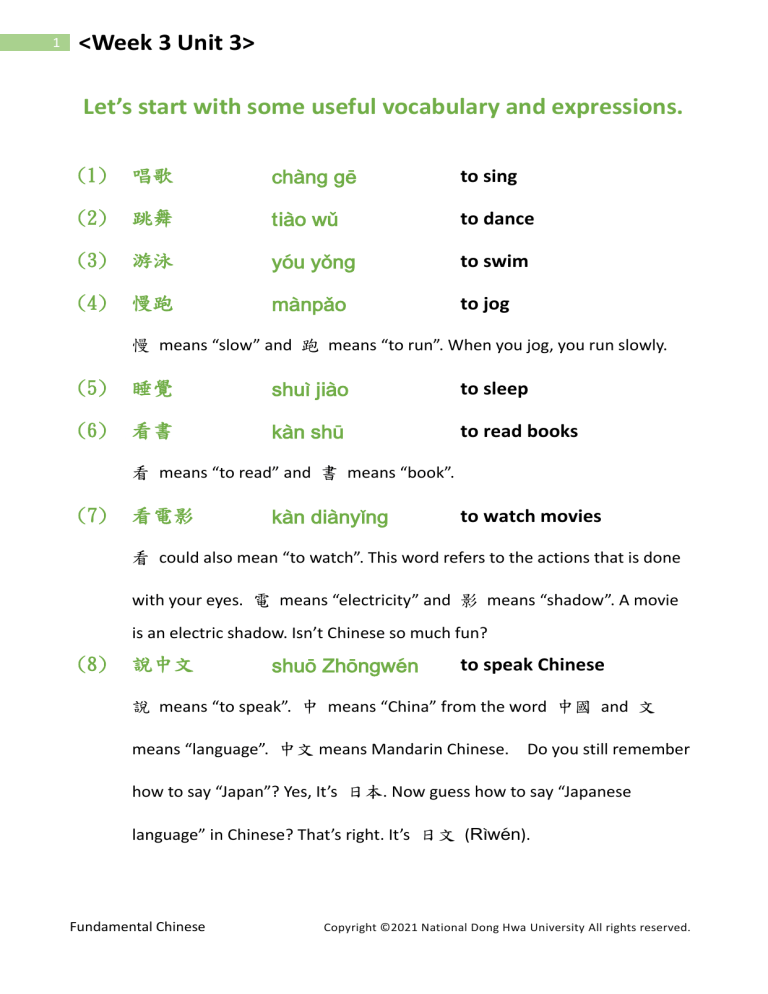
1 <Week 3 Unit 3> Let’s start with some useful vocabulary and expressions. (1) 唱歌 ch4ng g5 to sing (2) 跳舞 ti4o w& to dance (3) 游泳 y@u y#ng to swim (4) 慢跑 m4np3o to jog 慢 means “slow” and 跑 means “to run”. When you jog, you run slowly. (5) 睡覺 shu= ji4o to sleep (6) 看書 k4n sh% to read books 看 means “to read” and 書 means “book”. (7) 看電影 k4n di4ny-ng to watch movies 看 could also mean “to watch”. This word refers to the actions that is done with your eyes. 電 means “electricity” and 影 means “shadow”. A movie is an electric shadow. Isn’t Chinese so much fun? (8) 說中文 shu! Zh!ngw6n to speak Chinese 說 means “to speak”. 中 means “China” from the word 中國 and 文 means “language”. 中文 means Mandarin Chinese. Do you still remember how to say “Japan”? Yes, It’s 日本. Now guess how to say “Japanese language” in Chinese? That’s right. It’s 日文 (R=w6n). Fundamental Chinese Copyright ©2021 National Dong Hwa University All rights reserved. 2 <Week 3 Unit 3> Let’s learn how to talk about hobbies. (1) 嗎 ma a sentence final particle for asking yes-no questions. If you want to ask a yes-no question in Chinese, simply put 嗎 in the end of the sentence. For example, 你是美國人。 means “You are an American.” while 你是美 國人嗎? means “Are you an American?”. While you answer, put 是 or 不 first and they mean “yes/no”. Do more practice Scan the QR code below to do more practice in Quizlet. Fundamental Chinese Copyright ©2021 National Dong Hwa University All rights reserved.




